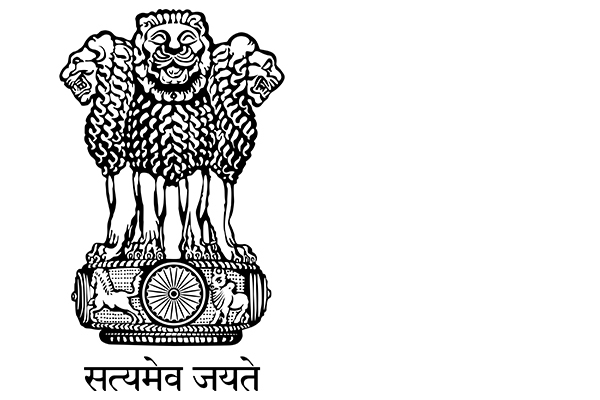Hon'ble Supreme Court Order on Advertising related to Elections
- The modalities whether such advertisements are in conformity with law, shall be said down by the Election Commissioner of India.
- Whereas, The Hon'ble Supreme Court of India by its further order dated 13 th April, 2004 , in SLP (Civil)No.6679/2004, has directed as follows:
““ ---- Before we pass the order, it will be worthwhile to notice certain provisions of the Cable Television Networks (Regulation) Act, 1995 [for short, “the Act”], as amended from time to time, and the Rules framed there under. The object of the Act is to regulate the operation of the cable television network in the country. Section 6 of the Act provides that no person shall transmit or retransmit through a cable service any advertisement unless such advertisement is in conformity with the prescribed advertisement code. Section 11 of the Act provides that if any authorized officer has reason to believe that the provisions of the Act have been or are being contravened by any cable operator, he may seize the equipment being used by such cable operator for operating the cable television network. Section 12 of the Act provides for confiscation of the equipment in the event of any violation of the provisions of the Act. Similarly, Section 13 of the Act also provides for seizure or confiscation of the equipment and punishment. Section 16 further provides for punishment for contravention of the provisions of the Act. Section 19 lays down that an authorized officer, if he thinks necessary or expedient so to do in the public interest, may, by order, prohibit any cable operator from transmitting or re-transmitting any advertisement which is not in conformity with the prescribed programme code and advertisement code and it is likely to promote enmity on grounds whatsoever, disharmony or feelings of enmity, hatred or ill-will between different religion, racial, linguistic or regional groups or castes or communities or which is likely to disturb public tranquility. Section 22 of Act empowers the Central Government to frame Rules to carry out the provisions of Act. The Central Government in exercise of the powers conferred on it by Section 22 of the Act is empowered to make Rules which are known as The Cable Television Networks Rules, 1994 (for short, “the Rules”). Rule 7 of the Rules provides that where an advertisement is carried in the cable service it shall be so designed as to conform to the laws of the country and should not offend morality, decency and religious susceptibilities. Sub-rule (2), inter alia, provides that no advertisement shall be permitted which derides any race, caste, colour, creed and nationality, is against any provision of the Constitution of India and tends to incite people to crime, cause disorder or violence or breach of law or glorifies violence or obscenity in any way. Sub-rule (3)further provides that on advertisement shall be permitted the objects whereof are wholly or mainly of religious or political nature, advertisements must not be directed towards any religious or political end. It is in this background, we now propose to pass the following order :
Every registered National and State, political party and every contesting candidate proposing to issue advertisement on television channel and/or cable network will have to apply to the Election Commission/Designated Officer (as designated by the Election Commission) not later than three days prior to the date of the proposed commencement of the telecast of such advertisement. In case of any other person or unregistered political parties, they will have to apply not later than seven days prior to the date of the telecast. Such application shall be accompanied by two copies of the proposed advertisement in electronic from along with a duly attested transcript thereof. In case of first phase of elections, the application shall be disposed of within two days of its receipt and until decision thereon is taken, our order dated 2nd April, 2004 shall apply. In case of subsequent phase of election, the application shall be disposed of within three days of its receipt and until the decision thereon is taken, our order dated 2 nd April, 2004 , shall apply. While disposing of such applications, it will be open to the Election Commission/Designated Officer to direct deletion/modification of any part of the advertisement.
The application of certification shall contain following details :- The cost of production of the advertisement ;
- The approximate cost of proposed telecast of such advertisement on a television channel or cable network with the break-up of number of insertions and rate proposed to be charged for each such insertion;
- It shall also contain a statement whether the advertisement inserted in for the benefit of the prospects of the election of a candidates (s)/parties;
- If the advertisement is issued by any person other than a political party or a candidate, that person shall state on oath that it is not for the benefit of the political party or a candidate and that the said advertisement has not been sponsored or commissioned or paid for by any political party or a candidate ; and
- A statement that all the payments shall be made by way of cheque or demand draft. We find that Section 2(a) of the Act defines “authorized officer”, within his local limits of Jurisdiction, as (a) District Magistrate; (b) Sub-divisional Magistrate; or (c) or Commissioner of Police. Similarly, Section 28-A of the Representation of People Act, 1951 provides that the Returning Officer, Assistant Returning Officer, Presiding Officer, Polling Officer and any other officer appointed under this part and any police officer designated for the time being by the State Government, for the conduct of any election shall be deemed to be on deputation to the Election Commission for the period commencing on and from the date of the notification calling for such election and ending with the date of declaration of results of such election and, accordingly, such officer shall during that period, be subject to the control, superintendence and discipline of the Election Commission.
Since it is not physically possible for the Election Commission to have a pre-censorship of all the advertisements on various cable networks and television channels, it has become necessary to authorize the Election Commission to delegate its powers in this behalf to the respective District Magistrates of all the States or Union Territories, not below the rank of a Sub-divisional Magistrate or a member of the State Provincial Civil Service. This may be done by a general order issued by the Election Commission. These officer shall act under the control, superintendence and discipline of the Election Commission. The Election Commission in its turn may delegate its powers to the Chief Electoral Officer of each State or the Union Territories , as the case may be.
The Chief Electoral Officer of each State or Union Territory may appoint a committee for entertaining complaints or grievances of any political party or candidate or any other person in regard to the decision to grant or to refuse certification of an advertisement. The committee so appointed shall communicate its decision to the Election Commission.
The committee so constituted will function under the overall superintendence, direction and control of the Election Commission of India.
The decision given by the committee shall be binding and complied with by the political parties, candidates, or any other person applying for advertisements in electronic media subject to what has been state above.
The comments and observations for deletion or modification, as the case may be, made, shall be binding and complied with the concerned political party or contesting candidate or any other person within twenty four hours from the receipt of such communication and the advertisement so modified will be re-submitted for review and certification.
We may clarify that provisions of Section 126 of the Representation of people Act, 1951, shall apply to the advertisement covered by this order.
If any political party, candidate or any other person is aggrieved by the decision taken either by the committee or by the Designated Officer/Election Commission it will be open for them to approach only this court for clarification or appropriate orders and no other court, tribunal or authority shall entertain any petition in regard to the complaint such advertisement. This order shall come into force with effect from 16 th April, 2004 and shall continue to be in force till 10 th May, 2004.
This order is being issued in exercise of the powers under Article 142 of the Constitution of India and it shall bind all the political parties, candidates, person, group of person or Trusts who propose to insert the advertisement in the electronic media, including cable network and/or television channels as well as cable operators.
It will be open to the Election commission to requisition such staff as may be necessary for monitoring the telecast of such advertisements. Where the Election commission is satisfied that there is a violation of this order or any provisions of the Act, it will issue an order to the violation of this order or any provisions of the Act, it will issue an order to the violator to forthwith stop such violations and it will also be open to direct seizure of the equipments. Every order shall be promptly complied with by the person(s) on whom such order is served.
The funds to meet the cost of monitoring the advertisements should be made available to the Election Commission by the Union of India. A dequate publicity of this order shall be given by the Union of India on the electronic media and through print media.
This order is in continuation of the order passed by this Court on 2 nd April, 2004 and shall remain in operation as an interim measure till 10 th May, 2004 .
Subject to the aforesaid order, the judgment of the High Court of Andhra Pradesh dated 23 rd March, 2004 shall remain stayed. This order is passed not in derogation of but in addition to the powers of the Central Government in regard to the breach of the provisions of the Act.”
- Now therefore, in pursuance of the aforesaid directions of the Hon'ble Supreme Court, the Election Commission, hereby directs as follows:
- (i) The Chief Electoral Officer Delhi is hereby directed to constitute a Committee comprising the following persons to deal with the application by the political parties and organizations mentioned in para (ii) herein below :-


 Directorate of Information & Publicity
Directorate of Information & Publicity 


